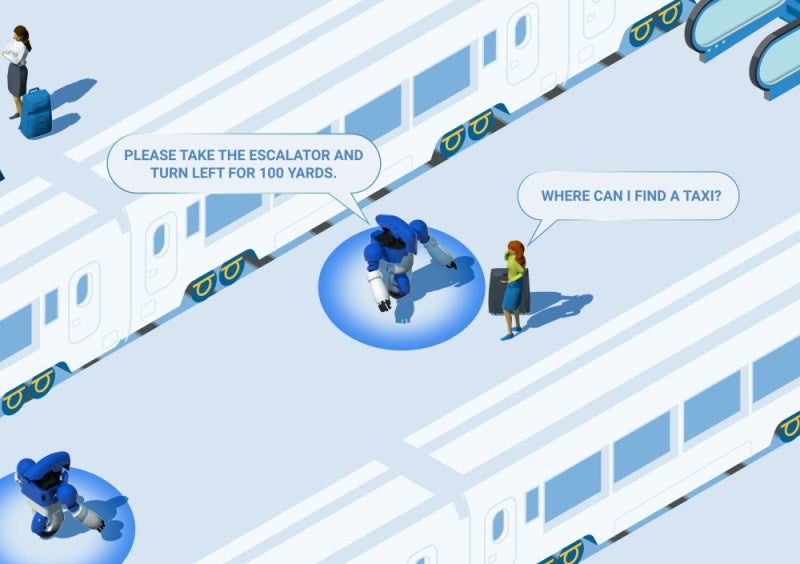
Rolling stock manufacturer Hitachi Rail has published concepts for ‘train stations of the future’, which could use robots and digital technology to improve passenger experiences.
The company envisions trains stations that leverage artificial intelligence (AI) technology to enable robots to guide passengers around the station.

Discover B2B Marketing That Performs
Combine business intelligence and editorial excellence to reach engaged professionals across 36 leading media platforms.
This follows Hitachi Rail’s announcement that it is testing prototype technology that may prevent long queues at ticket-barriers.
The technology underwent public trials at Haneda airport in Tokyo in 2017. Named EMIEW3, the robot could converse in multiple languages.
It used artificial intelligence (AI) and communicated with the central computer system to receive information about different activities in the airport.
This technology can ensure that the stations are cleaner and greener. It hopes to encourage rail travel by supporting passengers who rarely use trains.

US Tariffs are shifting - will you react or anticipate?
Don’t let policy changes catch you off guard. Stay proactive with real-time data and expert analysis.
By GlobalDataThe company said customer’s experience will be personalised with the help of real-time information.
Hitachi also plans to introduce battery-powered trains to replace the existing diesel fleets.
Hitachi Rail sales director Nick Hughes said: “Britain’s train stations could be revolutionised in the years to come as we harness the latest breakthroughs in robotic and artificial intelligence technology.
“Our concept of a smart station is already becoming a reality, with much of this technology already being trialled in Japan and Europe”.
In March, Hitachi Rail Italy (HRI) secured a contract from Denmark’s Metroselskabet to supply eight new autonomous trains for M1/M2 lines of the Copenhagen Metro.
The deal, valued at around €50m, also includes the delivery of signalling and communication systems.





